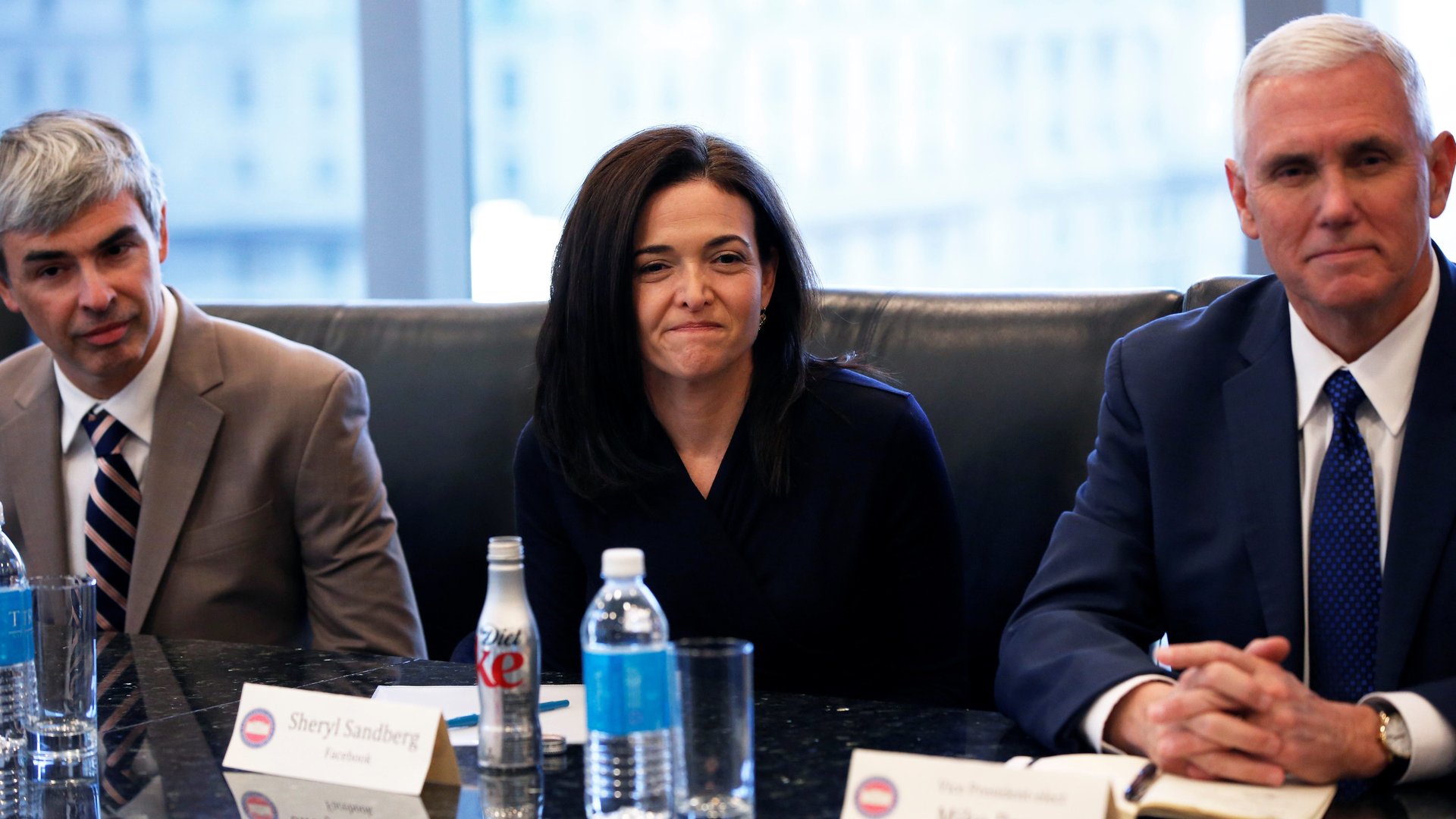Sheryl Sandberg’s prescient warning to Hillary Clinton before the 2016 campaign
Last July, Sheryl Sandberg endorsed Hillary Clinton for president in a lengthy post that opened with her daughter’s poignant question:


Last July, Sheryl Sandberg endorsed Hillary Clinton for president in a lengthy post that opened with her daughter’s poignant question:
Just a few years ago, I played a song for my kids that named all the U.S. presidents. My daughter asked, “Mommy, how come they’re all boys?” We are close to making my daughter’s question a relic of the past. Watching this historic moment with my children, I am thinking about our past and their future.
Now, a brief passage in Clinton’s new book What Happened reveals that the Facebook COO had warned Clinton at the campaign’s outset that the cards were stacked against her. “They will have no empathy for you,” she is quoted as saying.
In Clinton’s recollection, Sandberg shared two key insights at the start of the 2016 campaign. Both were based on research for her own book Lean In: Women, Work, and the Will to Lead, which details the difficulties that women face in getting ahead in the corporate world.
Sandberg’s first insight: Data show that for men, professional success is correlated with being liked, while successful women are treated with increased disdain. “The more professionally successful we are, the less people like us,” Clinton wrote. “Hearing it put that simply, with data behind it, felt like a lightbulb turning on.”
Sandberg also warned that women are seen in a positive light when they advocate for others, but the opposite holds true when they promote themselves. “This, too, resonated with me,” Clinton wrote. “People like me when I’m in a supporting role: campaigning for my husband, serving as a member of President Obama’s Cabinet. It’s okay for me to be a fierce advocate in those capacities. But when I stand up and say, ‘Now I’d like a chance to lead,’ everything changes.”
Sandberg’s advice would prove prescient during the 2016 campaign. Throughout the race, moments of sexism—both overt and insidious—were on full display. In What Happened, Clinton reflects on many of those instances, including what she sees as her own shortcomings. “I never figured out how to tell this story right,” she wrote, “I didn’t want people to see me as the ‘woman candidate,’ which I find limiting, but rather as the best candidate.”
Despite her regrets, Clinton also expressed hope that the next woman who runs for the US presidency have a slightly easier path.
“Other women will run for President, and they will be women, and they will have women’s voices,” Clinton wrote. “Maybe that will be less unusual by then. Maybe my campaign will have helped make it that way, and other women will have an easier time. I hope so.”